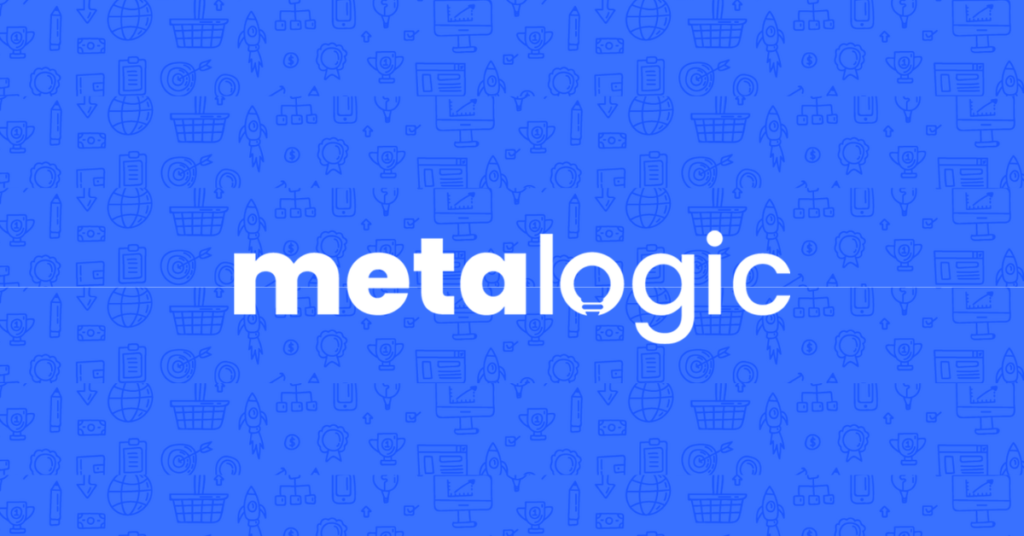What Is The Best Website For Reviews?

Nick Czerwinski
PPC & Local SEO Specialist
In today’s digital age, online reviews are essential to any business’s marketing strategy. With more and more consumers turning to the internet to research products and services before purchasing, companies must have a strong online presence and reputation.
However, with so many different review sites, it can be challenging for businesses to know which ones to focus on. Should you prioritize Google, with its massive user base and search engine optimization benefits? Or Yelp, focusing on local businesses and a dedicated user community? What about Facebook, HomeAdvisor, or any number of other review sites?
In this blog post, we’ll take a deep dive into the major review sites and provide a comprehensive overview of the pros and cons of each. We’ll back up our analysis with statistics and data, so you can decide which review sites are worth your time and investment.
So, whether you’re a small business owner just getting started with online reviews, or a seasoned marketer looking to optimize your review strategy, this post is for you. Let’s get started
Using Google for Business Reviews
Google is the world’s most widely used search engine, with over 90% market share. As such, it’s no surprise that Google Reviews are a critical part of any business’s online reputation. Google Reviews are integrated into Google My Business. This free tool allows businesses to manage their online presence across Google, including in search results and Google Maps. Google Reviews are highly visible, as they often appear prominently in search results when users search for a business by name or related keywords.
Pros:
Huge user base: With over 90% market share, Google is the most widely used search engine, meaning that Google Reviews are highly visible to potential customers.
SEO benefits: A strong presence on Google Reviews can improve your search engine rankings, as reviews and ratings are critical factors in Google’s algorithm.
Integration with Google My Business: Google Reviews are integrated into Google My Business, which allows businesses to manage their online presence across Google, including in search results and on Google Maps.
Cons:
Limited customer engagement: While customers can leave reviews on Google, there’s no way to engage with them or respond to their feedback directly.
No filtering of fake or unreliable reviews: Google doesn’t have a robust system for filtering out fake or unreliable reviews, making it harder for businesses to maintain a positive reputation.
Exploring Yelp as a Review Platform
Yelp is a popular review site focusing on local businesses, particularly restaurants, and bars. Users can search for companies by location or category and read and write reviews about their experiences. Yelp uses a proprietary algorithm to filter out fake or unreliable reviews. Businesses must actively manage their presence and respond to reviews on time to maintain a positive reputation.
Pros:
Focus on local businesses: Yelp is particularly popular for finding and reviewing local businesses, such as restaurants and bars.
Reliable review filtering: Yelp uses a proprietary algorithm to filter out fake or unreliable reviews, which helps maintain its reviews’ integrity.
Engagement with customers: Businesses can respond to reviews on Yelp and engage with customers to build relationships and address concerns.
Cons:
Negative bias: Some studies have found that Yelp reviews are more negative than reviews on other sites, which can be challenging for businesses.
Potential for harassment: Yelp’s review system can sometimes attract users looking to harass or blackmail businesses, which can be challenging to manage.
Utilizing Facebook for Customer Reviews
Facebook is the world’s largest social media platform, with over 2.8 billion active users. While not primarily a review site, Facebook does allow users to leave reviews and ratings for businesses on their pages. Facebook reviews are integrated with the platform’s business pages, which enable companies to create a free online presence and engage with customers through posts, messages, and other features.
Pros:
Massive user base: With over 2.8 billion active users, Facebook is the world’s largest social media platform, making it a great place to reach potential customers.
Integration with business pages: Facebook Reviews are integrated with business pages, which allow businesses to create a free online presence and engage with customers through posts, messages, and other features.
Engagement with customers: Businesses can respond to reviews on Facebook and engage with customers to build relationships and address concerns.
Cons:
Limited review reach: Facebook Reviews may not be as visible to potential customers as reviews on other sites, as users must actively seek out reviews on a business’s page.
Negative bias: Like Yelp, some studies have found that Facebook reviews tend to be more negative than reviews on other sites.
Understanding HomeAdvisor for Service Reviews
HomeAdvisor is a review site focusing on home improvement services, such as plumbing, electrical work, and remodeling. Businesses can create a free profile on HomeAdvisor and receive leads from customers looking for assistance in their area. HomeAdvisor also allows customers to leave reviews and ratings, which can help businesses build their reputation and attract more leads.
These are just a few of the major review sites out there. Many others, such as TripAdvisor, Angie’s List, and Yellow Pages, may be relevant depending on your industry and location. In the next section, we’ll take a closer look at the pros and cons of each site.
Pros:
Targeted audience: HomeAdvisor is specifically geared towards home improvement services so businesses can reach a highly targeted audience of potential customers.
Lead generation: HomeAdvisor allows businesses to receive leads from customers looking for services in their area, which can help to grow their customer base.
Integration with business profiles: HomeAdvisor allows businesses to create a free profile that showcases their services and reputation, which can help to attract more leads.
Cons:
Limited review visibility: HomeAdvisor may not be as widely used or visible as other review sites, particularly for businesses outside the home improvement industry
Honestly, I consider him part of my Team as well, he really cares about our success. As we grow, he will grow with us. I’m excited about the journey and future with Mike and his Team at Metalogic! If you’re looking at Internet Marketing for your business, simply put he’s the best!

Chris Chustz
Owner, Family First Mortgage
Statistics Highlighting the Effectiveness of Review Sites
To understand the impact of review sites on businesses, let’s take a look at some statistics:
- According to a study by Moz, Google reviews are the third most important factor in local search ranking, after Google My Business and link signals.
- According to Google, businesses with a 4-star rating or higher on Google My Business receive an average of 87% more views than businesses with lower ratings.
Yelp
- A Harvard Business School study found that a one-star increase in a business’s Yelp rating leads to a 5-9% increase in revenue.
- According to Yelp, businesses that complete their profiles and respond to reviews see an average of 5 times more leads than those that don’t.
- According to a survey by BrightLocal, 49% of consumers use Facebook to search for local businesses.
- A study by Social Media Today found that businesses that respond to more than 25% of their reviews on Facebook have an average rating of 4.3 stars, compared to 3.9 stars for those that don’t respond.
HomeAdvisor
- According to HomeAdvisor, businesses that receive reviews on their platform see a 150% increase in profile views compared to those without reviews.
These statistics show that reviews on each platform can significantly impact a business’s success, whether through increased visibility, higher ratings, or more leads. Companies should consider these statistics when deciding which review sites to focus on.
Implementing Best Practices for Review Management
Regardless of which review sites a business chooses to focus on, certain best practices for managing reviews can help them make the most of these platforms. Here are some tips:
Monitor reviews regularly
It’s essential to monitor reviews periodically on all review sites and respond to them promptly, whether they’re positive or negative. This show customers that the business values feedback and is committed to providing excellent customer service.
Encourage customers to leave reviews
Businesses can encourage customers to leave reviews by including links to review sites in their emails or on their website or by asking for reviews in person. However, avoiding incentivizing reviews is essential, as this can violate review site policies.
Respond to negative reviews constructively
Negative reviews can allow businesses to show their commitment to customer service. It’s vital to respond to negative reviews promptly and constructively, addressing any customer issues and offering a solution if possible.
Keep reviews authentic
Review sites prioritize authentic reviews, so businesses should avoid buying fake reviews or encouraging employees to leave reviews. Instead, they should provide excellent service and encourage genuine customer feedback.
Use reviews to improve the business
Reviews can provide valuable insights into areas where the company excels and areas where it can improve. Businesses should use this feedback to improve their products, services, and customer experience.
By following these best practices, businesses can make the most of review sites and use them to build their reputation and attract new customers.
Custom Marketing Plans Starting at $500 / month
Conclusion
In conclusion, review sites can be a valuable tool for businesses looking to build their reputation and attract new customers. While there are many review sites to choose from, each has its pros and cons, and companies should select the sites that best suit their needs and target audience.
Google is the most popular review site and has the most significant impact on the local search ranking. At the same time, Yelp is known for its impact on revenue, and Facebook for its ability to generate leads. HomeAdvisor is an excellent option for home service businesses, while TripAdvisor is ideal for travel and hospitality businesses.
Regardless of which review sites a business chooses to focus on, it’s essential to follow best practices for managing reviews, including monitoring reviews regularly, encouraging customers to leave reviews, responding constructively to negative thoughts, and using reviews to improve the business.
By using review sites strategically and following best practices, businesses can build their reputation, attract new customers, and ultimately, grow their bottom line.
Become A Google Ads Specialist With MetaLOGIC's Local Digital Marketing Academy
Get your business in front of the right people with Google Ads. From display and search campaigns to Shopping and video campaigns, there’s a way to reach your target audience on the Google Ads platform. Don’t wait to see results – Learn more about our Google Ads Online Training Course.








